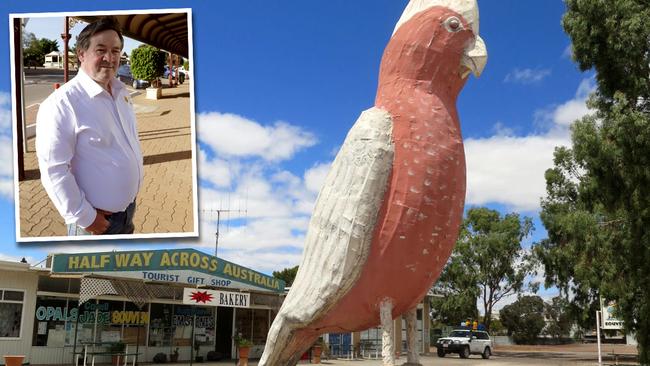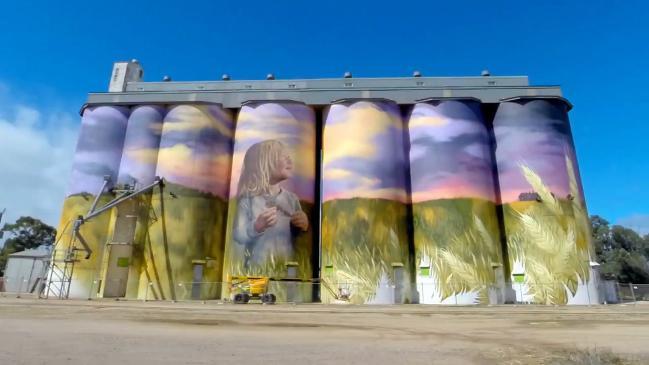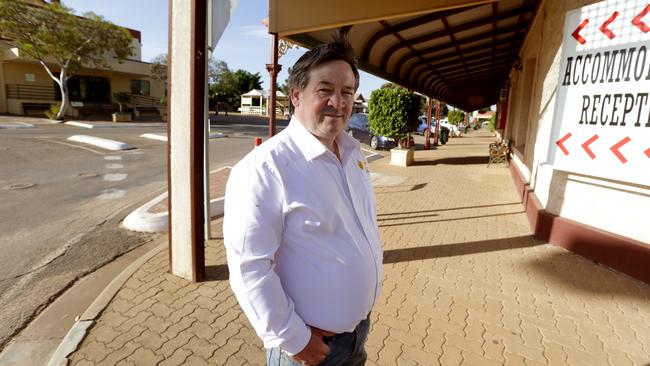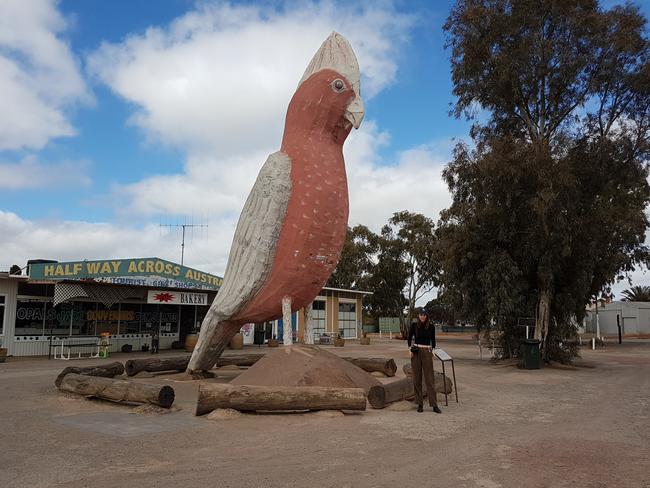David Penberthy: Dean Johnson is showing that, with a fully candid and open process, you can achieve consensus on a big and even intimidating idea
In the dusty western reaches of SA lies a community whose local government is experimenting with a radical new approach to politics – talking to its people, writes David Penberthy

Opinion
Don't miss out on the headlines from Opinion. Followed categories will be added to My News.
- It’s time all raving lunatics pollies got real about fires
- Latest subscriber exclusive giveaways, specials and prizes
Here’s a question: should the Mayor of Kimba be entrusted single-handedly to run the entire state of South Australia?
No disrespect to Steven Marshall or Peter Malinauskas. They’re both having a crack and doing as good a job as they can.
It’s just that Dean Johnson seems to be more of a go-getter. He is achieving extraordinary things by placing his faith 100 per cent in a process that can sometimes seem malleable or expendable in the more purportedly grown-up tiers of government.
That process is called democracy.
Until last week, the West Coast town of Kimba – a bit over five hours from Adelaide with a population of 629, according to the 2016 Census – was known principally for being home to one of Australia’s finest big things: The Big Galah, a majestic pink and grey fibreglass parrot adorning its high street.
In addition, Kimba may soon be home to Australia’s first purpose-built, medium-level, nuclear-waste storage facility.
The manner in which Kimba Council got to this point is worth celebrating.
It did so by talking repeatedly and openly to its constituents and recording their views.

The council facilitated a district-wide ballot of every ratepayer, surveying both the townies and the cockies (the farmers, that is, not the galah) and asked them how they would feel about being home to a nuclear dump.
The proposed nuclear-waste facility will not store high-level international waste, as envisaged in the SA Royal Commission into the Nuclear Fuel Cycle headed by former SA Governor Kevin Scarce, but domestic, low-level nuclear waste largely produced by nuclear medicine, the sort of stuff that’s currently housed at Sydney’s Lucas Heights and is also kicking around inside locked basements in our hospitals.
Two sites have been earmarked for the dump, both on farms owned by local graziers, one by the Rayner family and the other by the Baldock family, with farmer Jeff Baldock describing the dump as a “once-in-a-lifetime opportunity to secure Kimba’s future”.
The council played a fairly neutral enabling role in the ballot process, although it did point out the job and economic benefits if the project were to go ahead: 45 full-time jobs and a return to the Kimba community of $31 million from Canberra.
Last Friday, the Australian Electoral Commission announced the results: 62 per cent in favour and 38 per cent against.

“The great thing is that we had a better than 90 per cent participation rate so it’s a comprehensive survey that has galvanised almost the whole community,” a beaming (if not glowing) Mayor Johnson told me last week.
“We will now send the results back to the Department of Science and Innovation and hopefully we can get things up and running.
“It’s pretty exciting. I’m not pretending it hasn’t been a hard debate. There are views on both sides. But we have been respectful of different views and, most importantly, we have simply listened to and collated those views.”
It is not the first time the people of the West Coast town have voted in favour of a nuclear dump. In 2017, a preliminary council vote showed support for further investigation of the proposal, with 396 in favour and 294 against.
These are amazing results on an issue that instinctively invites trepidation. Kimba has put the inner-city NIMBY brigade to shame.
You can’t even get a five-story apartment block up on Unley Rd without an action group being formed. You could call the people of Kimba YIMBYS, for Yes In My Backyard.
It is interesting (and kind of depressing) to compare the manner in which Kimba achieved a mature consensus on such a fraught issue, while here in the big smoke, the public were taken out of the equation in deciding whether SA would play its part in the nuclear fuel cycle.
As Kevin Scarce said earlier this year, his royal commission report was “killed by politics”.
First, former premier Jay Weatherill pulled the rug out from under it by convening a non-representative citizen’s jury, which in a piece of undergraduate gimmickry cobbled together a flimsy report over a few Saturday afternoons dismissing the well-considered commission recommendations.

At that point, the then-opposition leader Steven Marshall lost his nerve, withdrawing bipartisan support for the initiative, fearful that he would have been painted at last year’s election campaign with the crazy-brave platform of being the only leader who definitely wanted to turn SA into a nuclear dump.
Where’s Dean Johnson when you need him?
The defining feature of what Jay Weatherill did and what Steven Marshall did in turn was to ensure that vast amounts of public money and publicly funded time were spent on a very measured and important piece of work, on which the public was never given a chance to deliberate. As a result, the report is now gathering dust and being used as a doorstop in the Chancellor’s office at the University of Adelaide.
Dean Johnson is showing that, with a fully candid and open process, you can achieve consensus on a big and even intimidating idea.
His approach has applications across politics – dare I say it, the Liberals’ land-tax policy might have had a chance getting up if it hadn’t been sprung on businesses and investors out of the blue after an election campaign framed around a promise of tax reductions for all.
For his part, Dean Johnson is happy in Kimba and is not angling for a job on North Tce. He did sound pretty stoked with the result last week, though.
“Just don’t call it a dump, OK?” was his final plea. “It’s a nuclear-waste storage facility.”
